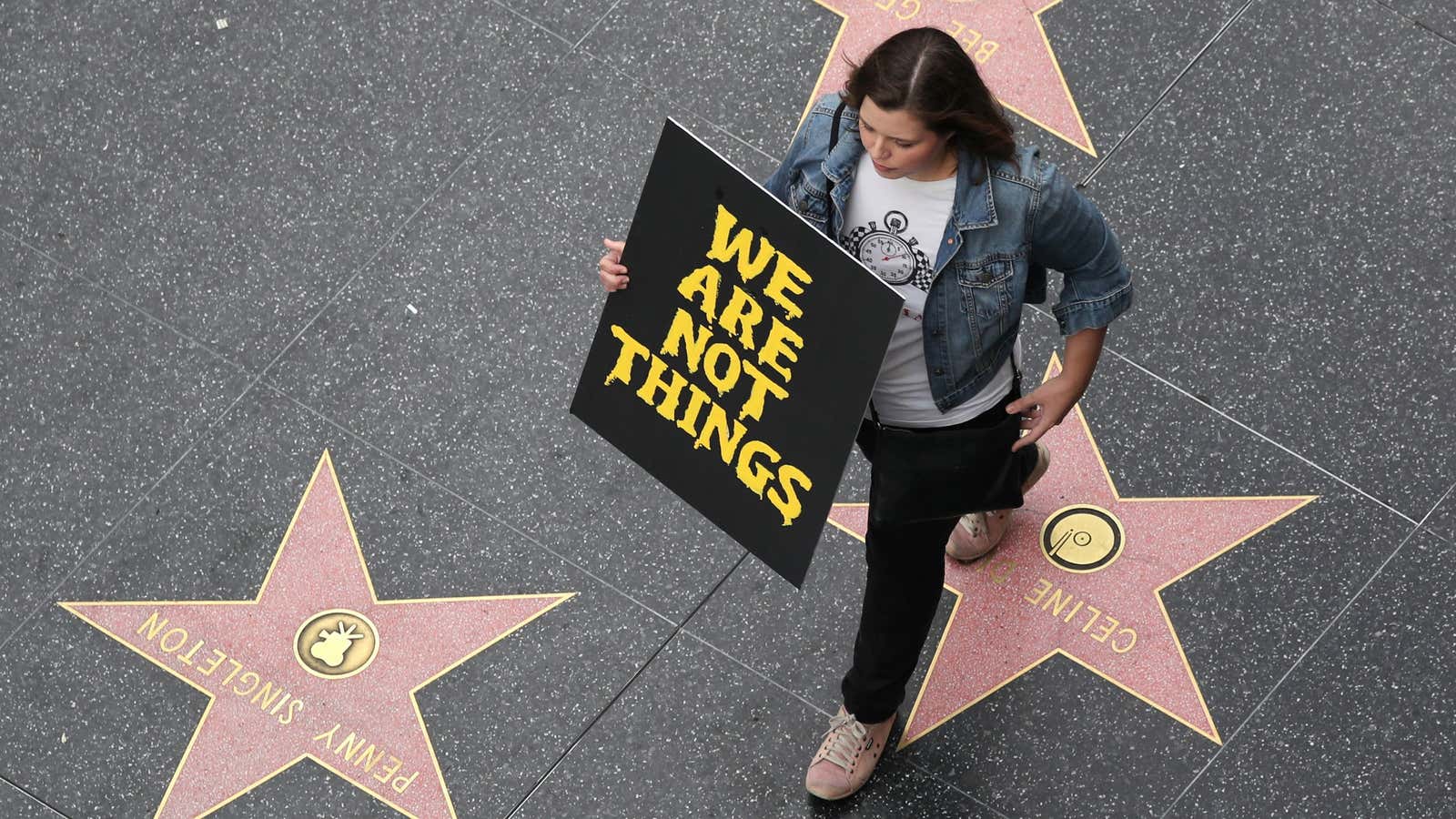It’s been a year of profound comeuppance for men accused publicly of despicable workplace behavior. But have the rest of us noticed any change at the office in the wake of the Me Too campaign?
To find out, we worked with SurveyMonkey, the online surveys company, to conduct a poll of more than 2,000 Americans, asking if they’ve noticed changes in behavior at the office and whether they feel the overall effect of #MeToo has been positive or negative. We asked a nationally representative sample of working adults: Have you seen departures? And would you be surprised to see your company’s name in a headline one day because of a sexual harassment scandal?
About half said they would be “very” or “completely” surprised to see their workplace named in a #MeToo‐related headline. But nearly a quarter said they would be “not too surprised,” or “not surprised at all.” The latter figure is the average across all industries; when you isolate the tech industry, which for the moment has replaced Hollywood as the industrial epicenter for MeToo headlines (thanks this week mainly to Google), the proportion of workers who wouldn’t be too surprised or at all surprised creeps up to 30%.
Notably, across industries, responses from men and women on this topic did not vary much: Women who were surveyed did not perceive a greater problem within their workplaces than the men did.
#MeToo has changed the atmosphere, and some policies
Meanwhile, 69% of Americans said they believe Me Too is having a mostly positive impact on workplaces, though more women (74%) saw it this way compared to men (63%).
That sense of improvement, however, is apparently connected to intangible benefits—perhaps something in the atmosphere generally if not an outright change in workplace behaviors or policies. Most women (63%) reported that there have been no changes at their work because of Me Too. But we also discovered that 15% of American workers overall are seeing new policies in place, and 9% say they’ve seen others coming forward about sexual harassment or assault.
Men say they’re “more cautious” when interacting with women
The top-cited change at work is “men acting more cautious when interacting with women,” which was reported by 17% of respondents of all genders.
But here’s the rub: Only 10% of women say they’ve noticed this new behavior, compared to nearly one in four men (24%).
Our survey didn’t dig into the nuance of what men mean when they talk about being “cautious” around female colleagues, or their motivation for being more mindful. Ideally, they’re referring to a new openness and understanding of their own implicit biases and fixed notions about gender, and a willingness to notice autopilot behaviors that have typically led to reductive jokes or assumptions about who is going to be the office housekeeper and who will do administrative work.
Sadly, many reports have suggested this may not be the case, and that regressive fear and confusion linger.
Data for this SurveyMonkey Audience survey, which was conducted online in early October, have been weighted for age, race, sex, education, and geography using the US Census Bureau’s American Community Survey to reflect the demographic composition of the adults in the US. (Read more about how SurveyMonkey conducts surveys here.)
